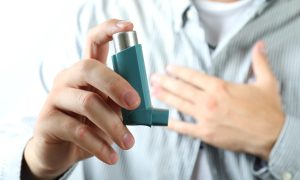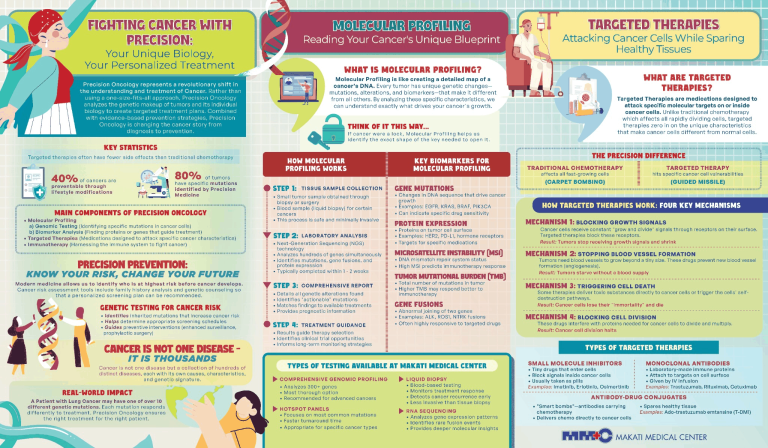Colostrum—this first milk produced by a mother immediately after childbirth—is usually considered as a baby’s first immunization. With a chockful of antibodies to stave off harmful viruses and bacteria, it lines a baby’s intestines, shielding it from potentially dangerous organisms.
Thereafter, as your little one grows, their health is protected through vaccinations—shots administered to help their immune system create antibodies that give them immunity against life-threatening diseases.
Vaccines are considered active immunity, “when exposure to the disease or organism triggers the immune system to produce antibodies to that particular disease,” says Mary Louise L. Gutierrez, MD, a Pediatric Infectious Disease Specialist at Makati Medical Center (MakatiMed). “Active immunity can be acquired naturally, like when you become resistant to the common cold because you developed immunity after being exposed to its virus. In the case of vaccines, a shot containing a weakened form of the disease or organism is given to a patient, prompting the immune system to produce antibodies to that particular disease.”
In the Philippines, a national immunization program launched by the Department of Health (DOH) in 1976 identifies the types of vaccines recommended for infants and children based on age.
Vaccines given shortly after birth are the BCG or Bacillus Calmette-Guérin vaccine, which creates antibodies against tuberculosis or TB, and the Hepatitis B vaccine, the first of three (3) doses given to protect a baby from Hepatitis B (or liver infection). In the first several weeks of life, babies are immunized against TB, polio, diphtheria, tetanus, pertussis, and measles—diseases that tend to spread quickly among unvaccinated children, causing major outbreaks.
As a response to a common question, yes, babies who have received their initial shots can join family outings—with a caveat. “Though they received the first doses of the primary series that is critical to a newborn, they still have not completed the series,” notes Dr. Gutierrez. “So if parents do bring their baby out, ideally not in crowded places. The outdoors is fine, for as long as it’s not polluted. Family members can take precautions too by wearing a face mask when they’re around the baby.”
In the months leading up to their first and second years of life, they are ready to receive the measles-mumps-rubella-varicella (MMRV) vaccine; the first of three doses of the pneumococcal conjugate vaccine (PCV) against pneumonia; booster shots of the diphtheria-tetanus-pertussis (DTP) vaccine; and annual shots of the influenza vaccine.
From the ages of four (4) to 18 years, they can receive booster shots for tetanus-diphtheria-pertussis and measles-mumps-rubella. A vaccine against Hepatitis A can also be administered at this age. And as children approach their teen years, a vaccine against the Human Papilloma Virus (HPV) is highly recommended to protect them against cervical and other types of cancers.
For mothers who are constantly looking after their children’s health and well-being, all these vaccines are either reassuring—or add to their worry. Are they safe?
“That’s one of the first questions we are asked,” says the MakatiMed pediatric infectious disease specialist. “The answer is yes, but do expect the usual reactions right after a vaccine is administered. These are mostly mild, and they resolve after a few days. Serious side effects, such as a severe allergic reaction, are very rare.”
For redness, swelling, and pain on the site, paracetamol is prescribed, sometimes even before the vaccine is given. “This is in anticipation of the pain and discomfort, as well as a fever that may develop,” explains Dr. Gutierrez. “Swelling can be addressed with a warm compress for the first 24 hours, followed by a cold compress the next day.”
What happens if a child falls ill the day before their scheduled immunization? “In general, children can get vaccinated even if they have a mild cold, cough, or fever,” she declares.
“But always make sure to talk to your child’s doctor first. If what your child has looks to be just a mild illness, then perhaps you can proceed with giving the vaccines that are due. But if the condition is a little more concerning, then it’s up to the doctor to decide whether to proceed with giving the vaccines or not.” In any case, catch-up immunization allows children to receive missed doses of a vaccine and still get the protection they offer.
For all the benefits that vaccines provide, the decision on whether to immunize a child or not is still a parent’s call.
“That is a very common concern, which we perfectly understand,” emphasizes Dr. Gutierrez. “As doctors, it is our duty to discuss the data and the side effects, what to expect more or less, and then right after that, make a shared clinical decision with the parents.”
The hope, of course, is to avail of vaccines. The right dose is capable of ending outbreaks and pandemics and saving millions of lives worldwide.
Article based on the Pregnancy & Beyond episode with Mary Louise L. Gutierrez, MD last October 19, 2024.
For the complete list of Makati Medical Center’s Pediatric Specialists, click here. You may also reach us via MakatiMed On-Call at (+632) 8888 8999 or at [email protected].
Follow our social media pages for more health-related content and for the latest updates: https://www.makatimed.net.ph/social-media-pages/











